Dashnor Kaloçi
Part twelve
Memorie.al publishes some archival documents with the initials “Top secret”, issued by the Central State Archive in Tirana (Fund of the former Central Committee of the ALP) which belong to 1961 and are part of a voluminous folder with letters , reports, information, reports, instructions, petitions, etc., where it comes to the beginning of contradictions and the breakdown of official Tirana’s relations with the Soviet Union, which at that time was very much felt by Albanian students who were then studying in schools and universities of the Soviet Union, who, by order received from Tirana, discontinued their studies and waited for instructions to return to Albania. The complete file of Albanian students in the former Soviet Union, where most of them, mainly those who attended Military Academies, High School of State Security, Police, Border, Justice, etc., had major problems and were met with many vicissitudes with the official Russian authorities, leading to the measure of arrest as well as the intervention of the Albanian military attaché in Moscow, Major General Halim Ramohito, to unblock the situation and return the Albanian military students to their homeland.
Continued from the previous issue
Tirana on 19.6.1961
SECRETARY OF K.Q.P.P. ALBANIAN
COMRADE RITA MARKO
TIRANA
At the behest of the Comrade Minister, we are sending you a report prepared by Captain Lolo Ganiu, an effective member of the Ministry of Internal Affairs, a former trainee in the Soviet Union who talks about the stay of some Soviet officers in Moscow.
WITH RESPECT
NON COLONEL
KOLI SHUKE
I N F O R M A T I O N
Before the departure date on June 12, 1961 from Moscow to my homeland, I was questioned by two first-year officers of the Higher School of Law of the Soviet Union. They were called, one Robert and the other Vanja. The first, came from the Republic of Armenia and was Captain I, while the second, came from the Republic of Kyrgyzstan and was Captain II.
The question of both was: why were we leaving the USSR?! The answer was given to you: after you have understood why we are leaving us. Once your government has ordered for this work.
In this discussion, Robert asked us praying that we have no information, and that after the Moscow Meeting of the communist parties, our party worked on a letter where he raised many things, among which I remember well that he spoke about Albania in these three issues:
1) Albania allegedly criticizes the Soviet Union for not helping it economically. These words are quoted by the leadership of the Albanian Labor Party, led by Enver Hoxha.
2) Albania with its leadership together with China, make noise for conflict, because you do not like peaceful existence together.
3) The leadership of the Albanian Labor Party condemns the friends of the Soviet Union. As are many cases they have been dismissed by the Central Committee, such as a friend in the Bureau, who is now in prison.
In this discussion, Captain Vanya II said: “We are clear that the revisionist Khrushchev destroyed the socialist camp, and joined Tito, Nasser, Nehru, and Sukarno, who persecute the communists every day.”
The old Khrushchev dog, giving wealth to the capitalist states and the Soviet people, suffers for clothing and food. He, since he became First Secretary and later President, unjustly criticized Stalin and revised many old communists, such as: Malenkov, Molotov, Bulganin, Zhukov, etc.
While Robert told me that: three days ago I heard from a Russian officer, that Bulganini had killed himself. You Albanians do not be afraid at all, to go safely to your homeland, without you will come here again in Moscow. At the moment of separation, both officers cried and told us to say goodbye to the Albanian people and the leader Enver Hoxha.
On June 5, Captain I, surnamed Miltoçi, of the third year of the Higher School of Law of the Soviet Union, from the Tartar Republic, declared that the cause of the breakdown of friendship between the Soviet Union and Albania was Khrushchev. He, with his policy dispersed the socialist camp and is helping the capitalist states with food and clothing, especially the Arab states.
So we as a Soviet people after 40 years of socialism are suffering for clothing. He has raised prices and in the republic where I live, he finds neither meat nor butter, as his aim is to supply only the capital Moscow. Khrushchev is making open propaganda against Stalin, calling the latter a terrorist.
On May 20, the film “Heaven Cleared” was released, a very dirty film about Stalin. This film was not well received by the people. This film was distributed in all republics of the Soviet Union.
After this film came another film that presents Khrushchev as a progressive and successful man. This propaganda is made to the people to attract their love for Stalin, but the love for Stalin is never removed and Khrushchev will have a short time.
Fier on 16.7.1961
Captain
Lolo G. Alimemaj
R e p o r t
On the findings of Police officers who studied at the School of the Ministry of Internal Affairs of the RSFSR in Moscow during 1960-1961
Our officers have studied in separate groups in the faculty of foreigners. We had contact with the Russian professor. She used to give us exercises for talking to the newspaper. We also had contact with the professor of Geography, that of Political Economy, and the professor of History, so a total of 4 professors. In addition to them, we were in contact with the third year students of the Faculty of Law, of the school with whom we lived together, but shared in some rooms with them.
One of my classmates was studying in the first year of the Faculty of Law and he had contact with a wider circle of professors and first year students. The Soviet officers were very close to us and from the foreign nationalities who studied there, the fact that they only associated with Albanians was noticeable.
From the beginning our comrades have opened political talks with Soviet officers and the first finding was that they were not very interested in these talks. There was a spirit of indifference and indulgence. Later, they also began to notice the fact that the Soviet press did not write anything about Albania.
On the other hand, words were circulating as if Comrade Enver had insulted Khrushchev at the Moscow Summit. For all this, they had nothing clear. Their party had not told you anything and they did not know the essence of the matter. In this situation, our comrades began to explain to them, the reason for this silence of the press, the position of our party and the Chinese Communist Party on major ideological issues, the revisionist stance of Khrushchev and his comrades, and the vile pressures and blackmails they do to our country.
Our explanations in all cases have aroused surprise and despair among them. All the while, the circle of people who have talked to us, reaches about 500 people and we saw no opportunity to encounter opposition on their part. In our opinion, there is a lot of ideological confusion in their ranks, because with everyone we spoke to, no one reacted the same and everyone had their own opinion on a certain issue. As for Khrushchev, the worst jokes were made about him everywhere, but all of them were not based on principled issues.
In general, they reacted to our explanations as follows:
- Lecturers:
Russian language teachers, Nina Sidorova, at first did not like it when we spoke, and in one case even stressed that a Soviet adviser returned from Albania, had allegedly told her that our people are lazy. After we protested, and explained our progress with facts, she withdrew and began to always speak well of us.
The information pedagogue, Poljakova, was in full solidarity with us, especially with regard to the condemnation of Yugoslav revisionism.
The pedagogue of geography, Semenova, read revisionist newspapers and in the lesson, she explained Yugoslavia as a socialist state. After our protests and the unmasking of the Yugoslavs as revisionists, she replied: “That’s what they told her.”
The history teacher, Bukanov, was interested in learning our views. After listening to them and reading Comrade Enver’s report at the IV Congress, (he came and begged us to give it to him), he showed complete solidarity with us and said that this is a black cloud that has temporarily covered the sun. A new day will leave and the sun will shine again. After that, he became closer to us and prayed that what we said to him, we would not say to anyone else.
On the days we were going to leave, he advised us not to stay all school, but some to go outside while the rest stay inside (this measure we had taken ourselves before). Nikolski, a first-year professor of Political Economy at the Faculty of Law, barely answered a question posed to us by our friend during the seminar.
While we were resting, he came and took our friend aside and begged him not to ask such questions again. As he fully agrees with us, but is obliged not to speak as he thinks. The question was about economic relations in Yugoslavia, which he explained as capitalist.
- Student officers:
This is a very large number of people and we are not able to list the names of those we talked to. We are recording how they reacted. The vast majority of them are fully in solidarity with us. They knew nothing, and when we explained it to them, they were astonished and gave us full justice. But when we asked them how they could get out of this situation, they were silent.
There were illusions that Khrushchev would understand the mistake, that the XXII Congress would put things right, and so on. Their only concrete reaction in this situation was that they held us with courage and hoped that everything would end successfully, and these misunderstandings would be rectified. A very small part, about 5-6 people, fully understood the situation and knew that there was no other way out but Khrushchev to account for all these atrocities he was committing.
The most active among them were: Boris Arkadijev Semenyuk, Lanja Ivanovich Panteleyev, Ali Hasanov, Arsen Akanian, all first-year students of the Faculty of Law. A small part (including the foreigners of the People’s Democracies), were indifferent. It should be noted that Comrade Enver’s report, held at the IV Congress, has been read by more than 100 people, and is still being read, as we left it there.
- Out-of-school persons:
Two months ago, 7 people from my group were returning from a walk they had taken and suddenly an unknown person approached them who was looking at them with sympathy and spoke to them in Albanian: “Where are you brave Albanians”. When we asked him who he was, he introduced himself to us as a Soviet adviser who had worked for Comrade General Zoit. He shook our hand cordially and after looking carefully around, left by greeting with a fist.
Lieutenant Colonel Fadil Qazimi met with Soviet Smirnov, a former adviser to the Police Directorate, and gave him a message for Comrade Juliet, and other comrades. He did not have time to fully talk and we left to meet the next day. But he did not come to the meeting, even though our friend waited for him for days.
The whole time we talked to Soviet officers, we were treated like everyone else by the School Command. After receiving an order from our embassy to drop out of school, on June 8, 1961, in the morning, we went to the Commander of the Faculty of Foreigners, Colonel Guzejev, and informed him in protest of the expulsion of our comrades from the Security School and at the border; we drop out of school and go to Albania.
He was surprised and asked us for explanations. We explained it all to him, starting from the Bucharest Meeting onwards. An hour later the School Commander called us, where we said the same thing. He too was surprised, and told us he knew nothing. He also told us not to have these conversations with Soviet officers.
The news of our departure quickly spread to the school and groups of students started coming, who anxiously asked us the reason for our departure from the USSR. We used to tell them that even though we were instructed by the Commander of the School not to tell you anything (this aspect revolted them a lot), we would tell you everything.
There was a case when the second course boycotted the lesson and sent a delegate to us to find out what was going on. The atmosphere in the school was electrified, so the next day we were called, and the Soviet documents we had were taken away, to give us our passports, and we were told to leave as soon as possible.
That same day, the Commander of the 3rd Course, Lieutenant Colonel Romanov, came to us and took us aside and asked us to explain how things were going. When we explained it to him in detail, he became very revolted and left in despair. The day before departure, groups of officers came to meet us (3-5 people). They have greeted us and the vast majority has been touched.
They have said many good words about us and our party. They call it a disaster, the severance of our relationship and other general expressions such as: “This situation will not continue”, “trust us”, “you will come back to study again, as the atmosphere will be cleansed”.
The day we were leaving, we were escorted to the airport by Colonel Guzejev, who said nothing but cried when we parted. /Memorie.al
Deputy Secretary of the Basic Organization
Captain I Ali Korbi
Head of the group of police officers
Lieutenant Colonel Bektash Toro




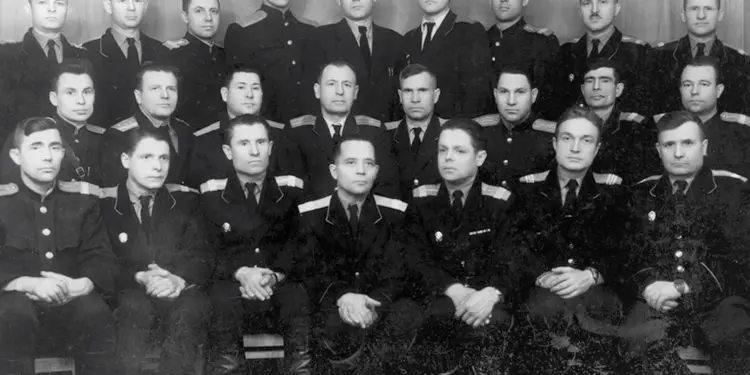



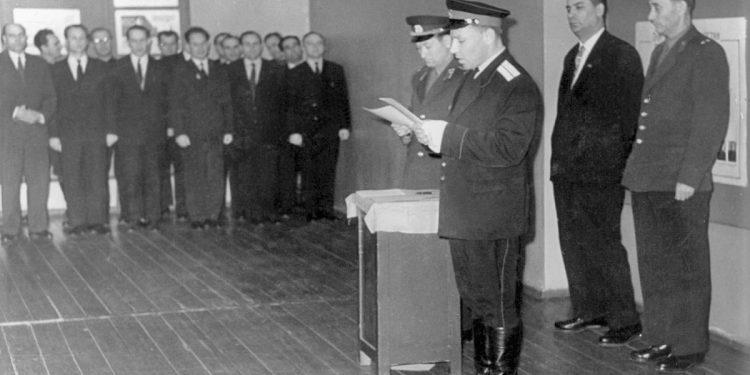

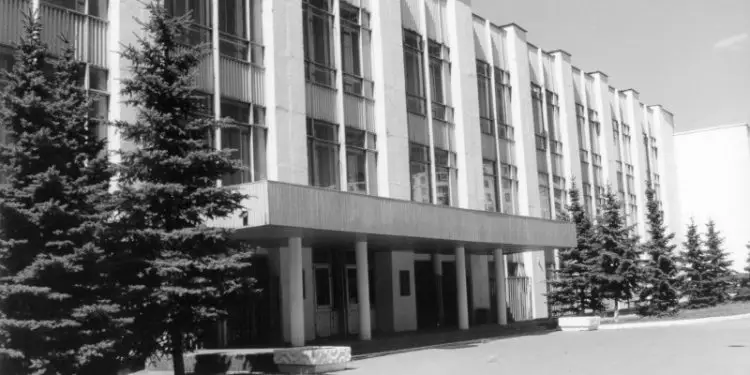

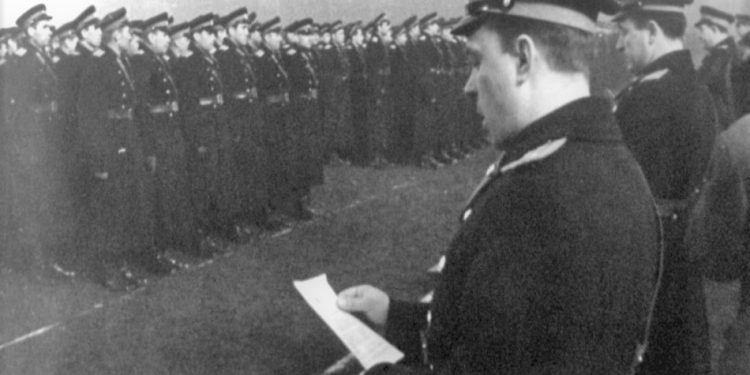

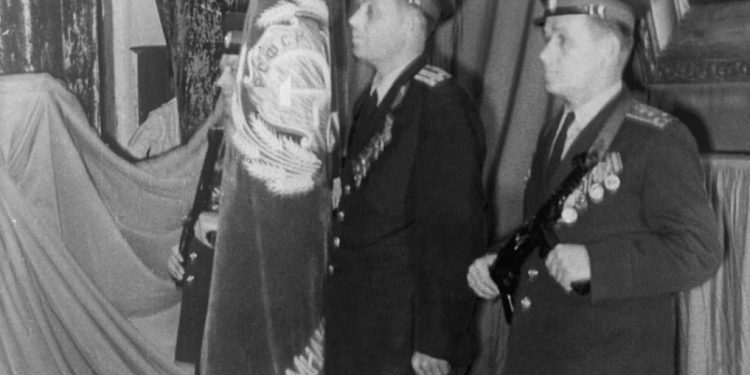

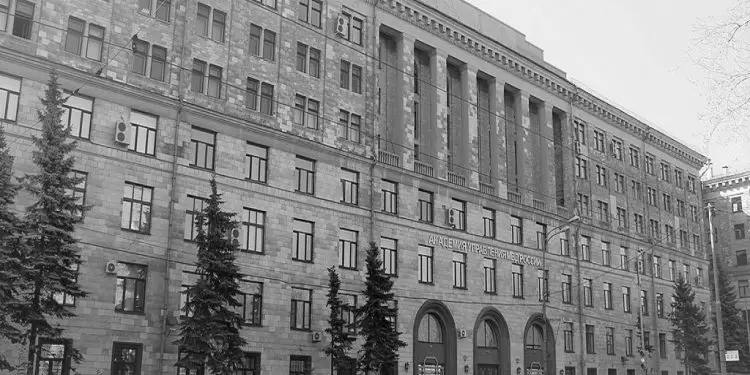

![“The ensemble, led by saxophonist M. Murthi, violinist M. Tare, [with] S. Reka on accordion and piano, [and] saxophonist S. Selmani, were…”/ The unknown history of the “Dajti” orchestra during the communist regime.](https://memorie.al/wp-content/uploads/2026/02/admin-ajax-3-350x250.jpg)
![“In an attempt to rescue one another, 10 workers were poisoned, but besides the brigadier, [another] 6 also died…”/ The secret document of June 11, 1979, is revealed, regarding the deaths of 6 employees at the Metallurgy Plant.](https://memorie.al/wp-content/uploads/2026/02/maxresdefault-350x250.jpg)




